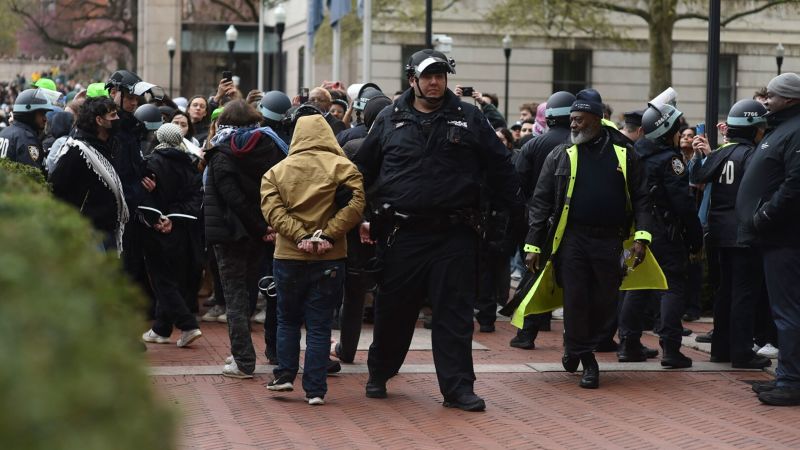
Over 100 people arrested as NYPD breaks up pro-Palestinian protest at Columbia University, law enforcement source says
CNN
At least 30 people were detained by New York Police Department officers, CNN witnessed, as police entered Columbia University on Thursday to disperse a pro-Palestinian protest that began a day earlier as the university’s president testified before a House committee about the school’s response to antisemitism.
More than 100 people were arrested by New York Police Department officers on a preliminary charge of criminal trespass, according to a law enforcement official, as police entered Columbia University on Thursday to disperse a pro-Palestinian protest that began a day earlier as the university’s president testified before a House committee about the school’s response to antisemitism. The individuals were detained with no resistance, and the university is named as the complainant since the incident occurred on its property, the official told CNN. Columbia President Nemat “Minouche” Shafik was in Washington, DC, testifying to the House education committee, as the protesters – including students, faculty and others – gathered in upper Manhattan early Wednesday morning, setting up tents and signs. Later that afternoon, competing rallies of pro-Israel and pro-Palestinian groups grew. Several people waving Palestinian flags had verbal confrontations with police officers, who had begun boxing the protesters in with barricades, CNN affiliate WCBS reported. In video from WCBS, pro-Palestinian protesters could be seen clashing with police and some had lit small fires. One woman could be seen being led away in handcuffs. Four people were arrested overnight during protests at Columbia, the NYPD said. Police did not specify what charges were filed and gave no additional details about the arrests.

A number of Jeffrey Epstein survivors voiced their concern in a private meeting with female Democratic lawmakers earlier this week about the intermittent disclosure of Epstein-related documents and photos by Democrats on the House Oversight Committee, sharing that the selective publication of materials was distressing, four sources familiar with the call told CNN.












